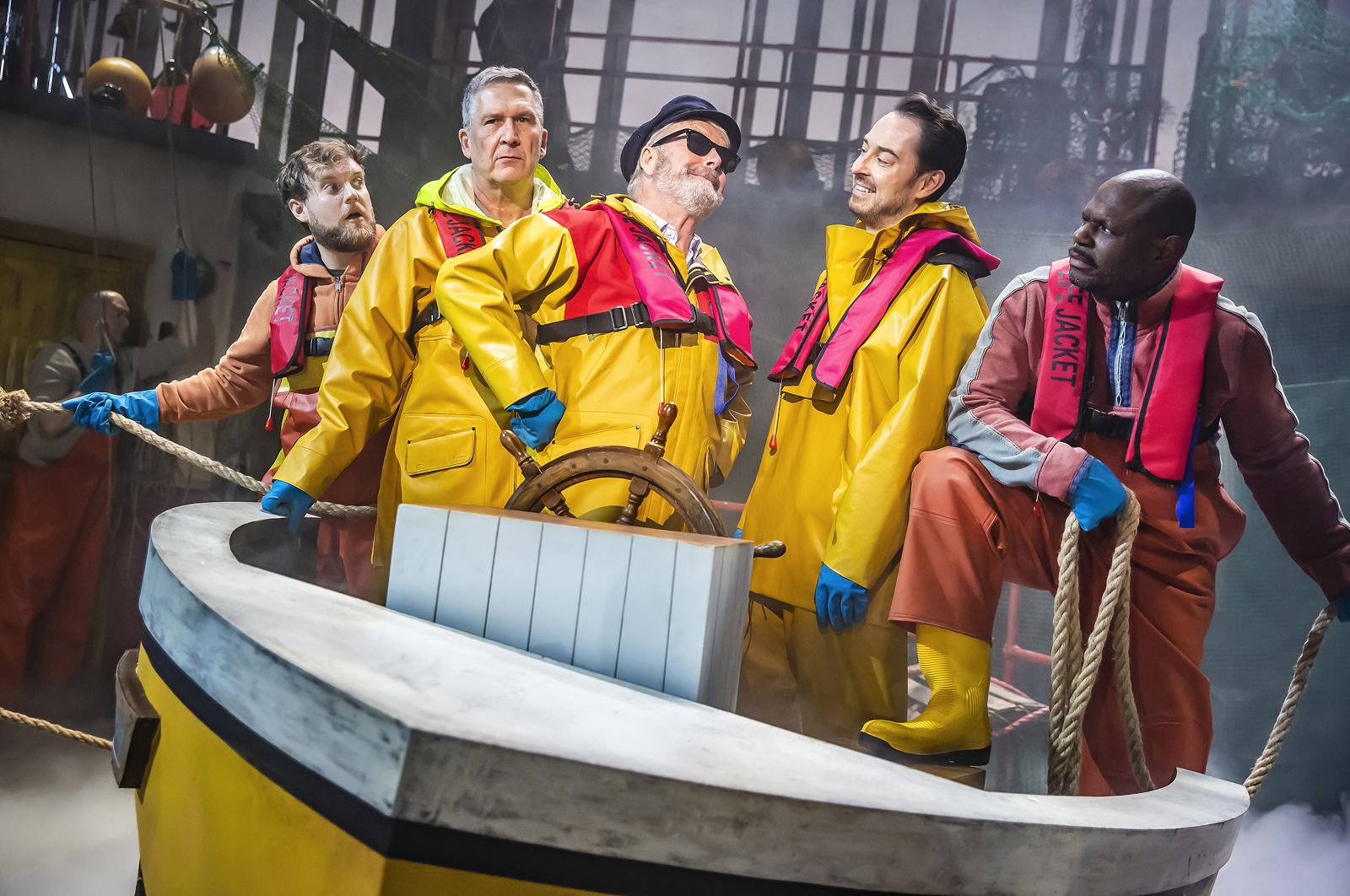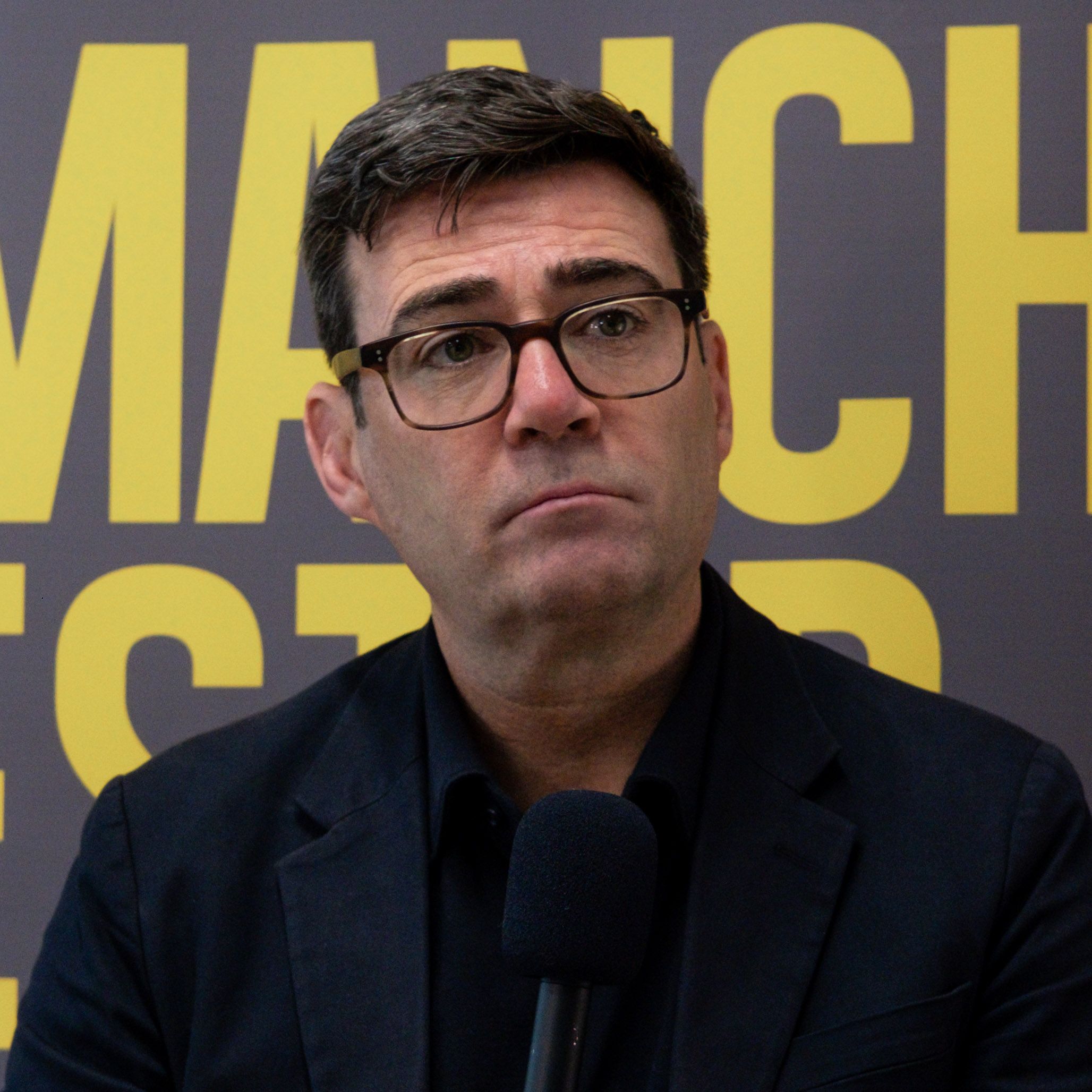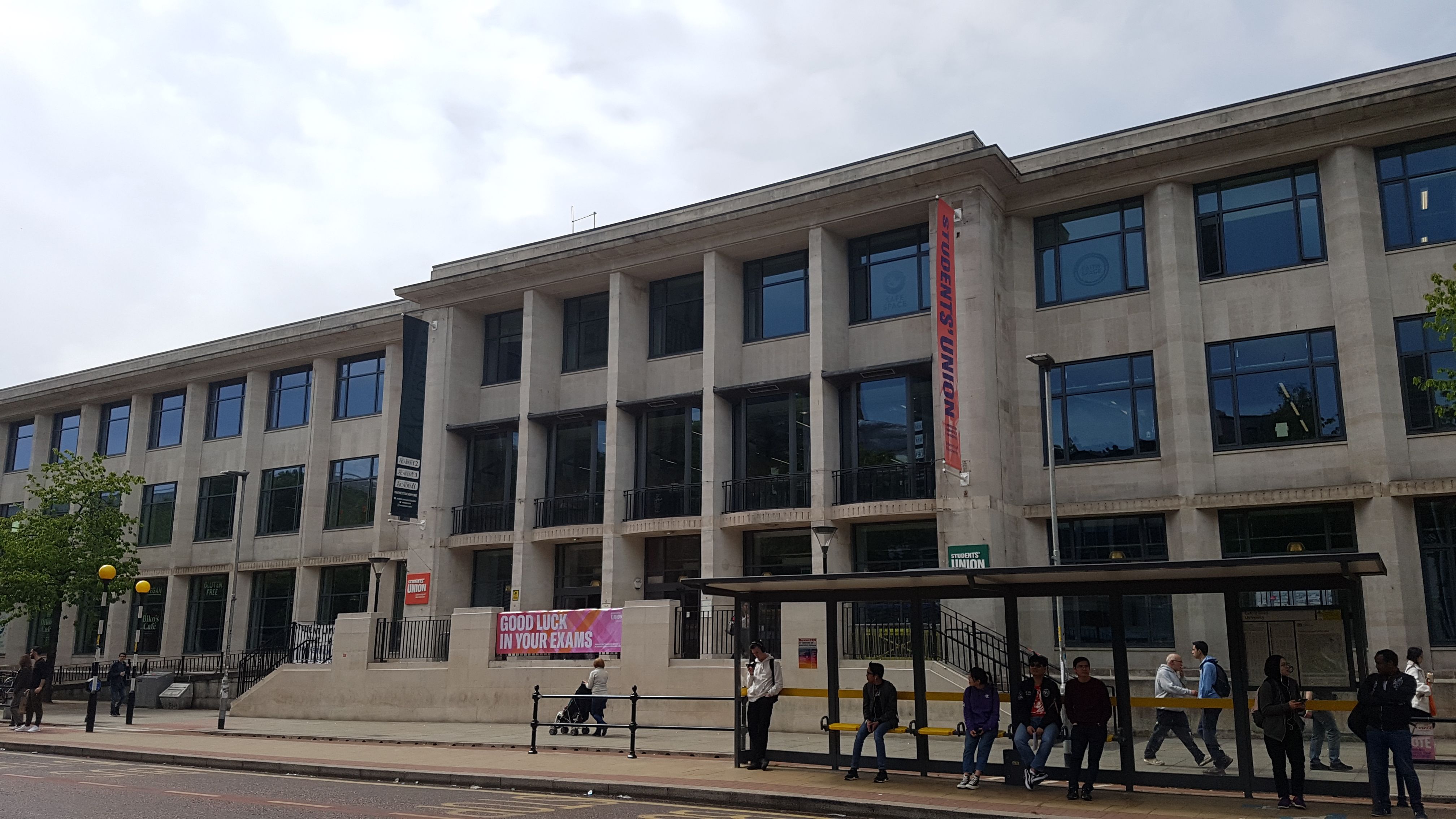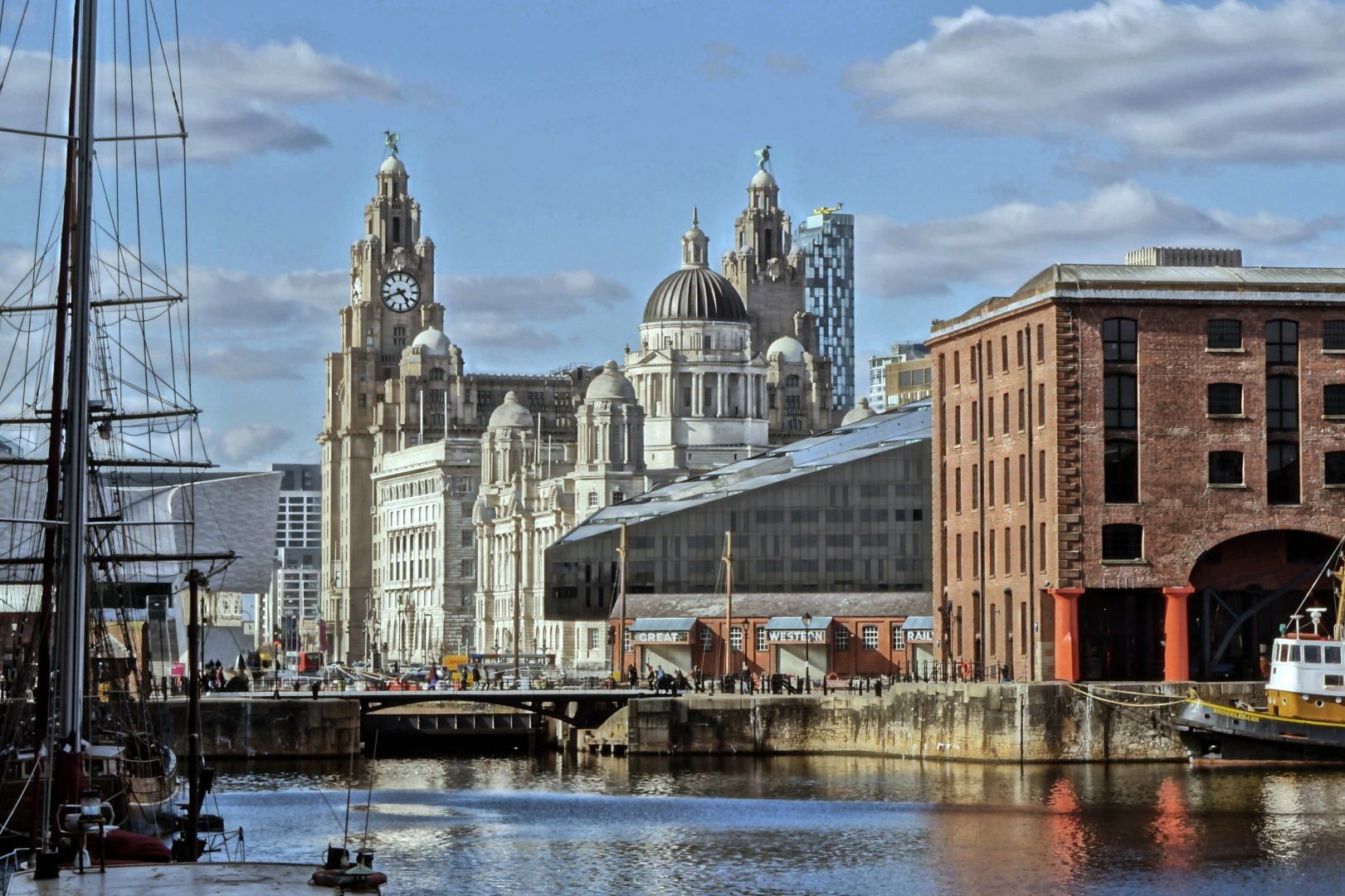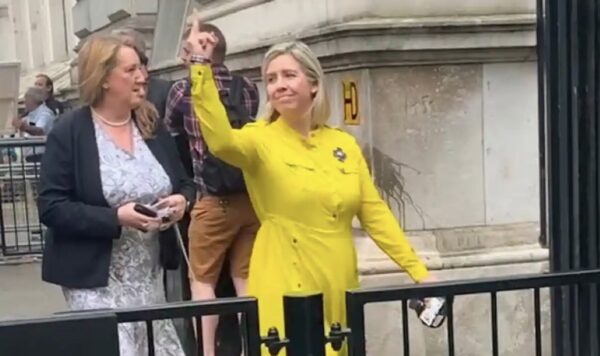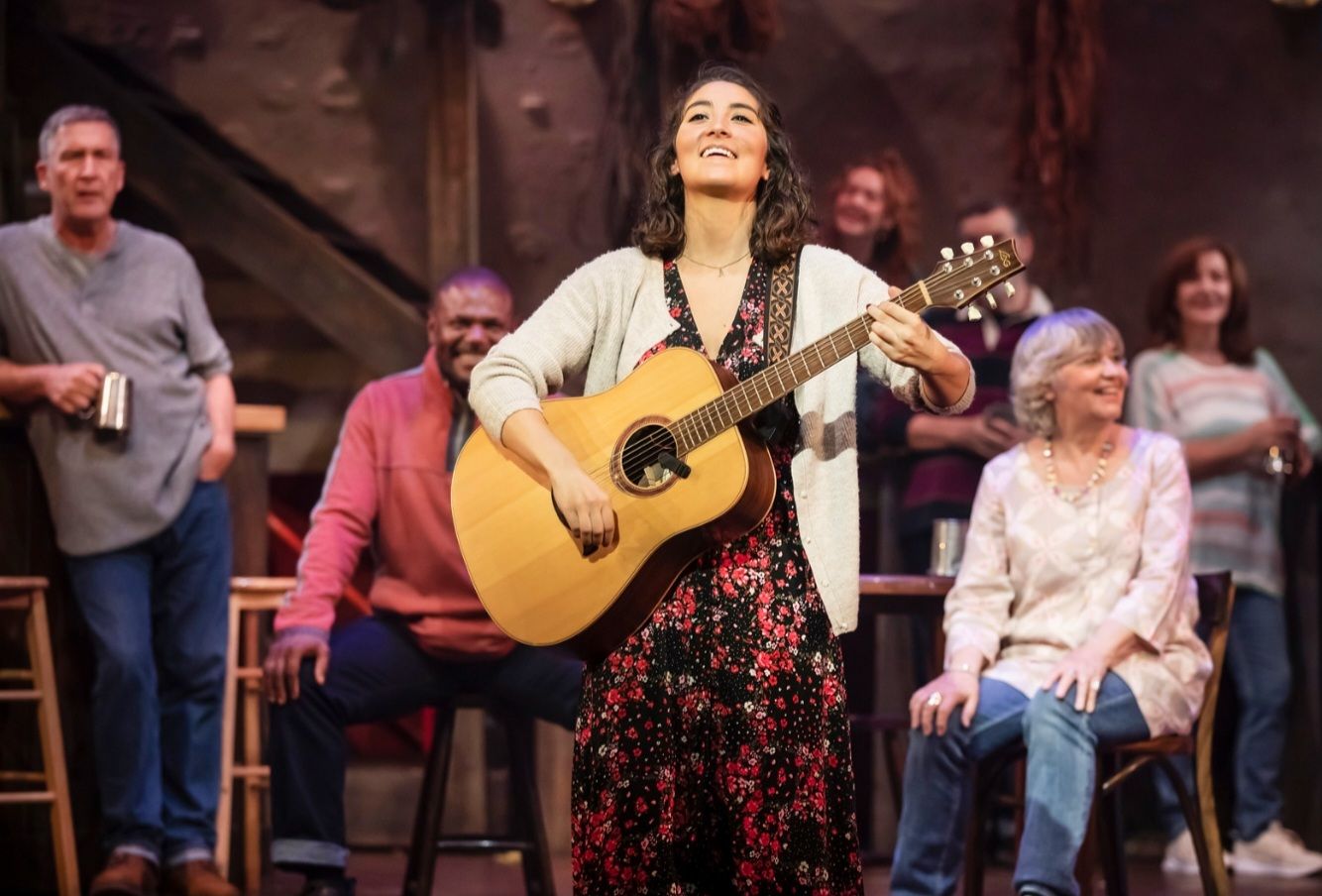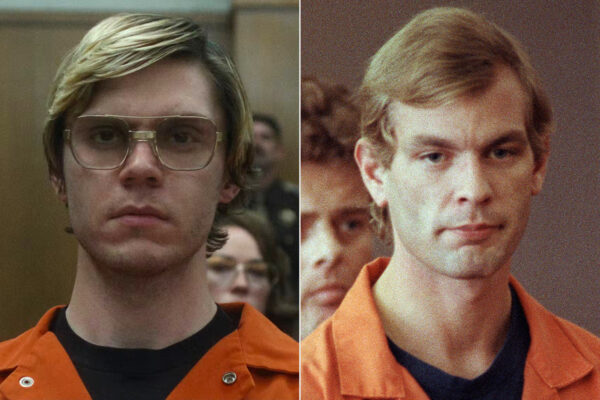Review: Fisherman’s Friends
Musical sensation Fisherman’s Friends has finally dropped anchor at the Lowry and left its audience tuna-ing (pardon the pun) into a whole-hearted performance full of fun, jokes and shanties galore.
Whilst I was aware of the movies: Fisherman’s Friends (2019) and Fisherman’s Friends: One and All (2022), I had little prior knowledge of the band or the storyline before researching them for my interview with skipper-man’s daughter Alywyn, played by Parisha Shahmir, the week before the show. Their story immediately seemed interesting, especially since very few musicals have used folk music and shanties (this being the first instance I have ever seen), making the show a completely new experience.
The show is about a group of working fishermen in Port Isaac, Cornwall, who come together on the docks and in the pubs to sing old shanties passed down for centuries by generations before them, much like Rowan’s (Dan Buckley) in-debt pub. They are seen by sunk music manager Danny (Jason Langley), who tries to re-assert himself in the music industry and offers them a deal to record an album and play at Glastonbury, selling them as the “real men, real beards, real deal”, or ironically “South-Westlife”, with “songs that transport us to distant horizons”.
I went in not knowing what to expect yet was pleasantly shocked by the immediate involvement in the Cornish setting, sitting down amongst the sounds of chirping seagulls before a dark thundery ship was hurled onstage, swaying to and fro amongst the fog as impending shanties were sung.
After this impressive use of staging, the main set was lit to its full glory; one that transformed from pub, to pier, and to a boat garbed in nets, crab cages and buoys across the play and used different levels to create the sense of a split screen between two separate places, yet also created a space where the live (on-stage) band could spread and join the community of singing fishermen and their families. The strong relationship between the band, as well as Jim (Hadrian Delacey) and his daughter, Alywyn, were immediately captivating and authentic. They lived up to their motto: “truth, respect, community”.
Whilst these bonds created a great space for corny (but admittedly funny) dad-jokes, gags about viral songs like the ‘Weatherman’, or “interference” from seagulls, pranks, drinking and songs, I did find a portion of the first half to be a little slow in terms of the storyline.
It initially brought the characters in with their songs, families and table-stomping dances, introducing the audience to their sense of community, as well as a few plot lines that will become significant later in the story, however, it isn’t until later in the latter of the first-half that the show really begins to shine, with even more comedy and fun boosted by a love story, the struggles of Danny’s lies, and a hilarious mix of hopefulness and drunken antics – one of the funniest scenes playing alongside ‘In the Navy’.
However, despite the initially slow start, I found myself enjoying the show more and more. From the melding harmonies of the fishermen to the angelic voice of Parisa as Alywyn (described as the “songbird” and “Taylor Swift of the Southwest”), the show was filled with a beautiful mixture of music with the on-stage band having a real presence, dancing and playing harmonicas, violins, banjos, guitars, drums, woodwind, the accordion and more.
Some of the best songs had to be ‘Cousin Jack’, ‘Tidal pool’, ‘John Kanaka’, ‘No Hopers, Jokers and Rogues’, and Alywyn’s ‘Village by the sea’, which combines solo vocals with moments of communal singing and a cute dance between her grandparents Jago (Robert Duncan) and Maggie (Susan Penhaligon).
The musical also deals with themes of friendship and grief, debts, community, working life, motherhood, love and dreams with care and well-placed shanties reflecting these themes in key moments of the story. With the theme of grief, I especially noticed the superb and raw emotional vocal talents of Jim, in the moments after the band experiences a death.
Yet they balanced these themes perfectly with their humour with makeshift ships made from mops and flags, piggyback rides, feather boas and disco ball props, and a combination of family and “adult” jokes that had the audience constantly laughing. Each performer had their moment in the limelight, and every song was performed with the same amount of heart and passion as the last.
The biggest surprise of the night was a fake finish, which left the audience thinking the show had ended before they arrived at Glastonbury, receiving a standing ovation before another standing ovation was given when they came on stage a second time and encouraged the audience to clap throughout the song compilation. Even outside the theatre, people were still buzzing about the show with one or two people even singing the shanties on their way back to the carpark.
To anyone interested in viewing the show, I would highly recommend giving it a watch. Despite the initial slow pace, the development of characters, the humour and the amazing set design and talented musicians create an unforgettably exciting experience.
Fisherman’s Friends runs at the Lowry (Lyric Theatre) until 1st October and tours the UK until mid-November and then again from the end of January until mid-May. It will have its North American premiere at the Royal Alexandra Theatre in Toronto, Canada, from 27th November until 15th January!
